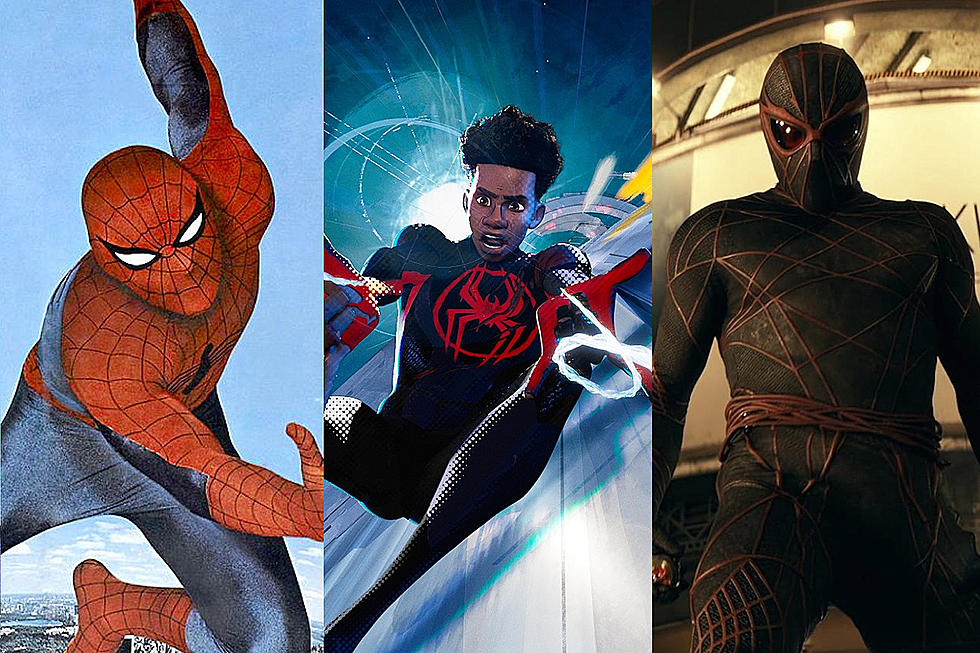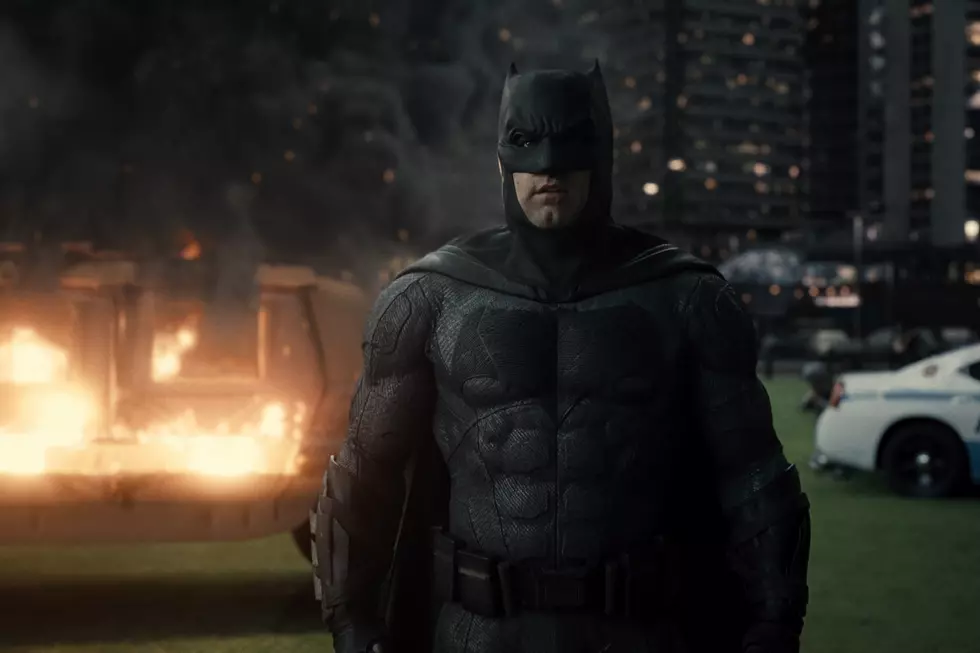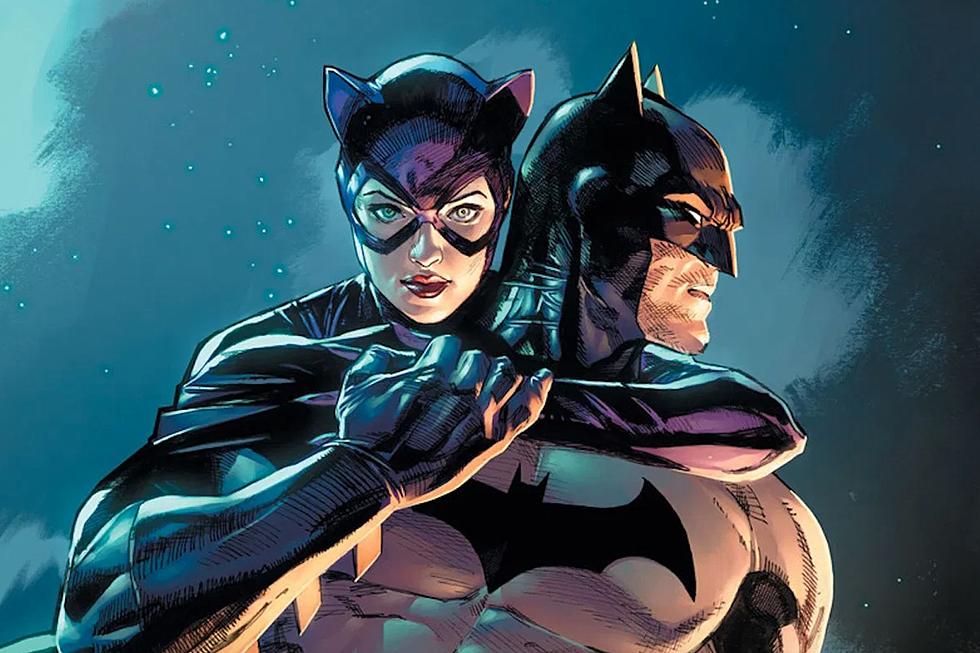
Ask Chris #216: When Do Horror Stories Become Superhero Stories?
Q: What major superhero can be most effectively dropped into a horror plot without causing it to stop being horror? -- @KaosExMachina
A: Y'know, I don't wanna make any of the other 215 people who have Asked Chris feel bad or anything, but this is easily one of my favorite questions that I've ever gotten. It's probably obvious by now, but I have a lot of fun thinking about different genre conventions and how they work, and this is the sort of thing that you can play around with forever, and that you can ask your friends and get all sorts of different answers and justifications, something that I actually did while I was getting ready to write this article. But it's also a really difficult one to answer.
It's like you said: When you add superheroes to horror stories, they tend to stop being horror stories.
Part of that comes from the simple idea that superheroes -- particularly the major superheroes, your Justice League and Avengers types -- aren't just protagonists, they're protagonists that are meant to go on pretty much indefinitely. Like, if you see some dude's name on the cover of a comic, then it's already difficult to believe that they're in any "real" danger, and when you know that that same name is on the cover of a book that's going to be coming out next month (and the month after that, and so on), and that it'll be accompanied by four or five other comics that also have that name, then you start to get pretty confident that that dude is probably going to be okay in the end.
And really, that's not a bad thing. Superhero comics have dealt with that for around 75 years, and they've gotten pretty good at creating stories where the emphasis isn't on whether the good guys are going to win as much as it's on how they're going to win, and what the consequences of those victories are going to be. It's one of the reasons that death tends to be a pretty temporary condition, because when you get right down to it, that's really just another bad guy that has to be defeated, usually in some roundabout way. I don't even think they let you into the Xavier school anymore unless you've got at least three credit hours of being dead.
But that also makes it almost impossible to put them into a real horror story.
Horror stories -- or at least, horror stories as I understand them, and keep in mind all of this is coming from someone who's too scared to ever actually watch a slasher flick -- are based entirely around creating that feeling of danger, that creeping knowledge that for most if not all of the people involved, nothing is going to be okay in the end. As a result, it tends to be pretty incompatible with superheroics. Just look at Hellboy.
Don't get me wrong, Hellboy is a great comic, and it's moody and atmospheric and involves some genuinely scary imagery, but it never really works for me as horror, simply because it's structured like a superhero comic. Hellboy in particular is, as Mignola reveals in the dedication to Seeds of Destruction, a Jack Kirby character living in an HP Lovecraft world, he approaches all those dark, forgotten chapels and sinister sepulchres like a superhero would: By punching something in the face until everything works out okay. And that's great, because it flips those genre conventions of folklore ghost stories around, and lulls you into thinking that Hellboy's got everything sorted out... right up unti there's a drastic change in the focus of those stories that changes the structure, throws in a whole bunch of BPRD agents who aren't quite as indestructible, and adds all that horror right back in.
So we've got superheroes, who are built on figuring out clever solutions to weird problems -- well, clever solutions to weird problems that can't be solved by punching them in the face or throwing them into the sun, which is like 1% of the problems superheroes face -- and a genre that's all about creating danger and then delivering on it with horrific consequences due to the failings of its protagonists. So if you want to put a superhero into that story, the trick is going to be finding a hero who's defined by failures and limitations.
Fortunately, we've got one of those right there on the A-list.
I've written about this before, but from day one, Spider-Man is built like a horror character. His first appearance in Amazing Fantasy #15 reads like an issue of Tales From the Crypt, right down to the ironic twist of it being his fault that Uncle Ben died. It sheds a little bit of that as it goes on, obviously -- especially when John Romita Sr. shows up to drag Steve Ditko's spindly teenager through puberty to turn it into a romance comic with punching. But still, Spider-Man never quite loses that horror-infused edge.
He's a character who's defined by his failures as much as his successes, failures that specifically find the people closest to him dying despite his best efforts. Uncle Ben, Captain Stacy, Gwen Stacy, Jean DeWolff, and Harry Osborn (who eventually got better) all died in ways that Peter Parker feels very personally responsible for, something that gives him a vulnerability that you don't get from other characters. I mean, you can't stand next to Batman for five seconds without at least having someone flip a coin to decide whether they're going to kill you, but that's never really played up as being Batman's fault, even if he feels bad about it. For Spider-Man, it's almost always the result of his mistake, to the point where he's directly involved in a couple of those.
So yeah: You put that guy in a horror story, you can still be reasonably certain that he's going to live, but everyone around him is going to be fair game. Which, I believe, tends to be how those stories work anyway. He just fits that genre in a way that other heroes don't, and if you ever want to see that in action, you don't need to look any further than Kraven's Last Hunt, which is as close to a straight up horror story as superhero comics have ever gotten. I mean, Spider-Man gets hunted down and buried alive in that book and that's not even in the top three creepiest things that happen. Heck, depending on how you feel about Kraven the Hunter getting bare-ass naked in the middle of a code-approved comic, it might not even be in the top five.
Either way, it doesn't hold a candle to the scene where Kraven is literally DROWNING IN SPIDERS.
guhhhhh
That's the other thing about Spider-Man: It doesn't hurt that he's naturally creepy as all heck, either. As much as I like that fluid web-slinging movement that you see in the movies (which is perfectly appropriate for swinging around Manhattan), I've always really liked the idea that when Spider-Man is on the ground, he doesn't so much walk as skitter, hopping from the floor to the wall to the ceiling and moving faster than any person should be able to move. It doesn't just emphasize the origin of his powers, it also makes him weird and unsettling in a really interesting way.
Of course, at the end of the day, he's still a dude who can lift a car, jump thirty feet in the air, and sense danger right before it happens -- something else that's pretty fun to play with in the context of a horror story, like giving him a bout of Spider-Sense that never stops because he's always in danger. He's still going to be a superhero, but he's a superhero who's very familiar with dire, murderous consequences to his actions, and who has always had to operate within defined limits. In a superhero story, those limits are designed to be overcome, but in a horror story? They could box him in for the ultimate in radioactive spider terror.
With all of that said, though, there's another way to look at this question, one that I didn't even realize until I was talking to Kyle Starks about it. I went in assuming that this was about making a superhero the protagonist of a horror story, but Kyle thought it meant using the superheroes as the villains, and I have to admit that's a pretty interesting take. If you look at it through a pair of Halloween lenses, or even if you just try to imagine them through the eyes of their enemies, then almost every superhero is just half a twist away from being a horror villain.
The alien who looks human but isn't, hiding among us and keeping its unstoppable power secret until it deigns to use it, that no weapon on Earth can stop. The statue from a mysterious island that comes to life so that it can tie you down and confront you with the secrets you're trying to keep. The reclusive billionaire with a crypt below his family mansion where he dreams up new ways to terrorize a significant portion of the population. The man with a radioactive heart who wears a tank to get his revenge. It's pretty fun stuff.
Kyle's suggestion was the Hulk, which is pretty spot-on (if a little on the nose), what with the fact that he's a normal person who literally turns into a giant rampaging monster and all, but it probably goes without saying that my suggestion would be Batman.
Just imagine being a criminal in Gotham City. You're already in this weird art deco-meets-gothic environment where literally every street is an alley and the sky is bright red at all hours of the night, probably working for a terrifying clown who's super into poison and knives, and suddenly that thing drops out of the sky (which, again, is red) and the next thing you know you're waking up with a broken jaw in a cell next to an actual talking scarecrow. That's not a good place for anyone to be.
Pretty awesome to read about though.
Ask Chris art by Erica Henderson. If you’ve got a question you’d like to see Chris tackle in a future column, just send it to @theisb on Twitter with the hashtag #AskChris.
More From ComicsAlliance









